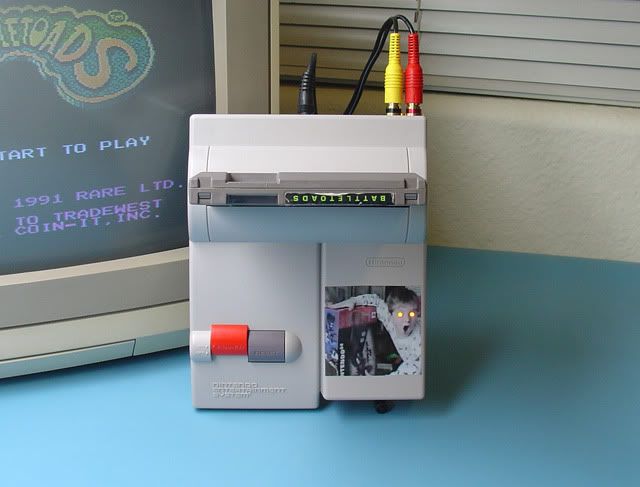
Discovery:
It was around '05, after discovering the wonders of surfing Yahoo Auctions Japan (YAJ), that I first laid eyes on a Panic Shot! Rockman cabinet. At the time, my Rockman collection was not quite as mature as it is at present, but I knew I could truly enjoy one such machine adorning my home.
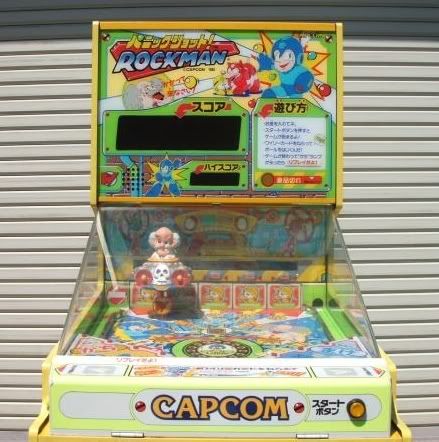
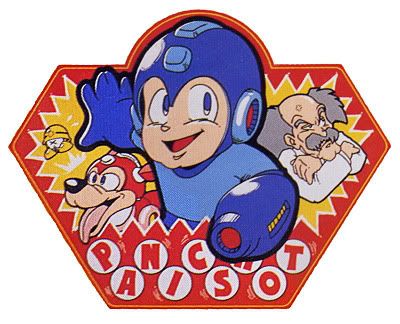
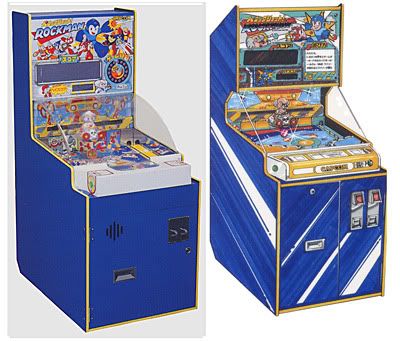 In '09 I donated scans of my flyers to The Arcade Flyer Archive (TAFA) in lieu of writing this article. While my writing was still in draft form, I came across yet another flyer for this machine.
In '09 I donated scans of my flyers to The Arcade Flyer Archive (TAFA) in lieu of writing this article. While my writing was still in draft form, I came across yet another flyer for this machine.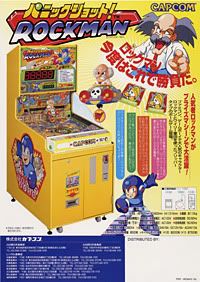
I put the article on hold until I could get the latest flyer in hand, scanned, and donated to TAFA. Well, you know how laziness/business works (got married, finally settled into a house, etc., etc.). Two years later, the flyer has been scanned, and here's your article.
Differences:
Comparing the 3 flyers shows that there are still only two designs (the 3rd flyer merely replaces the concept sketch flyer). The playfields have totally different artwork, as do the main scoreboard areas.

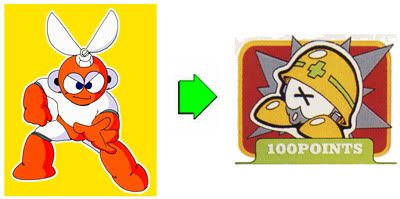
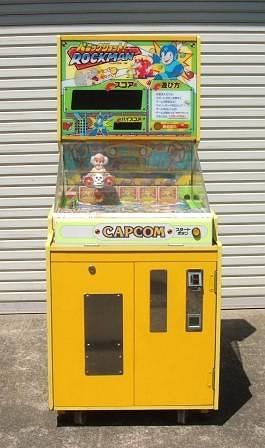
Operation:
The ultimate goal of the game is simple enough: get as many points as possible in order to win a prize. Points are made by hitting either the target hanging below Dr. Wily's UFO or the cards behind him. The rear cards are worth 100 points each, while Wily's UFO target is worth 1000 points. The UFO moves back and forth across the play field, so you can't just keep hitting the same angled shot over and over to rack up those 1000 pointers.
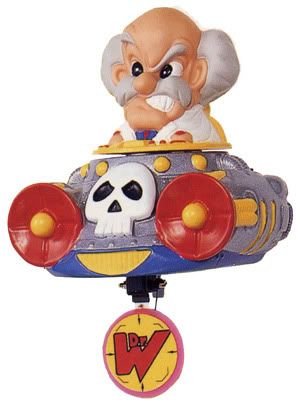
After the game is over, the computer calculates the player's total score and, if the "win" light flashes, a prize card is dispensed. I suppose the game center could put in whatever sort of cards they desire, but what is advertised on the machine itself is cards from the Super Barcode Wars Rockman Series. The image above the dispenser shows Blues and Rockman (cards #2 and #1 in the series).
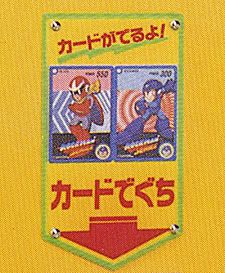
(Top: "Card is gonna come out!", Bottom: "Card Exit")
Inspiration:
To my knowledge, pinball tables are a rarity in Japan, let alone Japanese manufactured ones. That leads me to believe that inspiration for Capcom's mini pinball table came from abroad, namely the US. Certainly one of the most memorable mini pinball machines ever created was Bally's Baby Pac-Man. Bally tried to combine both the video game and pinball table experiences into one machine. Panic Shot! Rockman's similarities to the mini pinball aspect of Baby Pacman are fairly blatant. The play fields are similarly sized, the Ghost cards have been replaced by robots, and some of the other scoring gimmicks are consolidated into Wily's UFO.
Thanks:
Greg Bower - for his superb JP translation help!
Dan @ The Arcade Flyer Archive - for the wonderful service he provides the arcade community!





